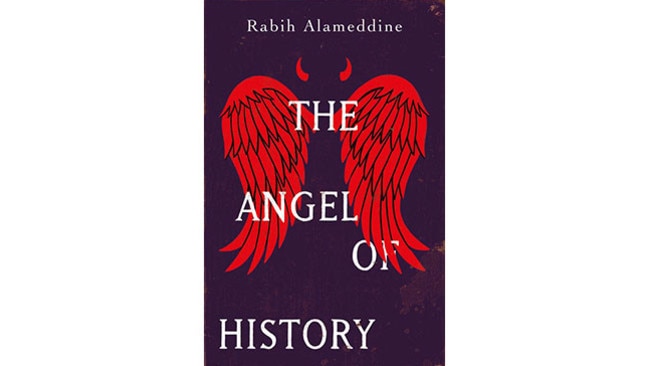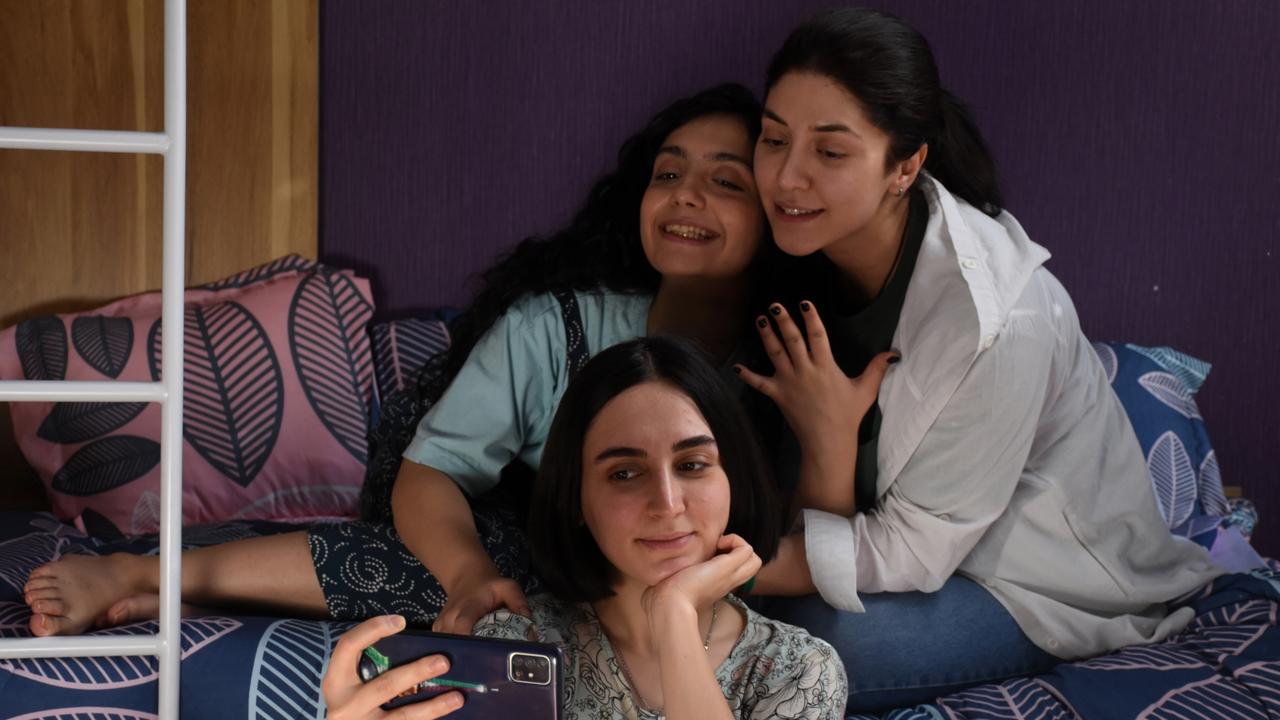Rabih Alameddine’s The Angel of History melds sacred and profane
The tongue-in-cheek tone of Rabih Alameddine’s new novel belies its exploration of grief.

Rabih Alameddine’s novel The Angel of History, with a nod to Walter Benjamin’s allegory of the same title, is a literary corpus marked by grief. The tongue-in-cheek tone of the searing writing belies a furious ethical project: to remember in the face of forgetting.
Jacob, the main character, is a struggling gay poet who has lived through the AIDS scourge of the 1980s. Bereft of his friends, who died from the disease, he is left behind in a dialectical duel with Satan, who is recording interviews with the haunting phantoms Jacob is mourning.
Fast forward to modern San Francisco at the free Crisis Psych Clinic where the poet has been experiencing hallucinations, embodied in Satan’s deleterious grip on his soul. Jacob battles to adjust to the zeitgeist, which is obsessed with the sanitising insistence to move on and forget his sad poems.
Lebanese-American Alameddine, author of the acclaimed novel An Unnecessary Woman, revels in crafting an unlikely character rupturing the polite bourgeois civilities of how Arabs are represented in fiction.
Jacob, “the congenital immigrant”, grows up with his mother, a Yemeni prostitute who thrives in Cairo’s seamy underbelly. His father is a spoiled man from a Christian Lebanese family, “Beirut’s bourgeoisie” that provided young Jacob a rigorously neo-colonial French Catholic education. “Our Jacob arrived a Muslim, allegedly … he needed a mega dosage, a supersized Mary with fries.”
Alameddine remixes the medieval Catholic imagery of the 14 holy helpers with postmodern satire about Jacob’s heady life from the Middle East to the US.
The apparitions of Agathius, Barbara, Blaise, Catherine of Alexandria, Christopher, Cyriacus, Dionysius of Paris, Erasmus, Eustace, George, Giles, Margaret, Pantaleon and Vitus read as a series of confessions that chart Jacob’s tormented soul.
They serve Alameddine’s purpose: to excavate sedimented stories of bodies torn asunder by violence, recuperate fabled superstitions, tell excluded histories that have been elided in neat narratives and find in them kernels of illuminating, hard-hitting truths.
Every few pages Alameddine alternates between starkly titled chapters: Jacob’s Stories, At the Clinic, Jacob’s Journals — and Satan’s Interviews. It’s an effective technique that allows the magical realism to set in from one vivid scene to the next, but the voices do become cacophonous at times and the distinctions between the characters blur.
Satan is hilarious, savours pancetta according to the narrator, and makes an appearance in one of Jacob’s long meditative monologues dressed in Saudi garb. He and Death, who opens the novel, engage in witty banter.
Alameddine takes digs at himself — “by far the worst Arabs are Lebanese novelists” — and smashes sentimental popular culture idols with refreshing irreverence in the process. He excoriates The New York Times columnists Nicholas Kristof and Thomas Friedman for their smug liberalism. Tom Hanks’s film Philadelphia and Barry Manilow take a parting shot.
The sacred and profane meld wickedly when a French nun molests a young Jacob in The Bouncing Nun. Alameddine writes about the forced rape sensitively but can’t restrain from farcical dark humour. The absurdist lambasting continues in A Cage in the Penthouse, where an Arab poet is imprisoned in a New York penthouse to amuse intrigued elites. “He’s like outsider art, you know, art brut,” the owner quips. Alameddine conjures images of slavery to touch on today’s racially charged climate of the US.
In The Drone, Alameddine is at his finest convincing the reader that a lethal drone can be in love with a Yemeni boy. Reciting Destiny’s Child lyrics while contemplating whether to kill the boy, the drone has the capacity for raining down “fire and cordite and nuanced residues of human roasts”. Perhaps, though, it will decide to spread democracy instead
Alameddine’s dense, elegant prose is sardonic and sharp, evoking traces of Salman Rushdie’s The Satanic Verses in its tangential flights of fancy. Each digression is packed with philosophical allusions to a diverse cast from WH Auden to Benjamin, Charles Baudelaire and Henrik Ibsen. This work drags the reader into Alameddine’s surreal world, one that is haunted by melancholic memories of love and loss.
Farid Farid is a journalist and critic.
The Angel of History
By Rabih Alameddine
Hachette, 304pp, $32.99


